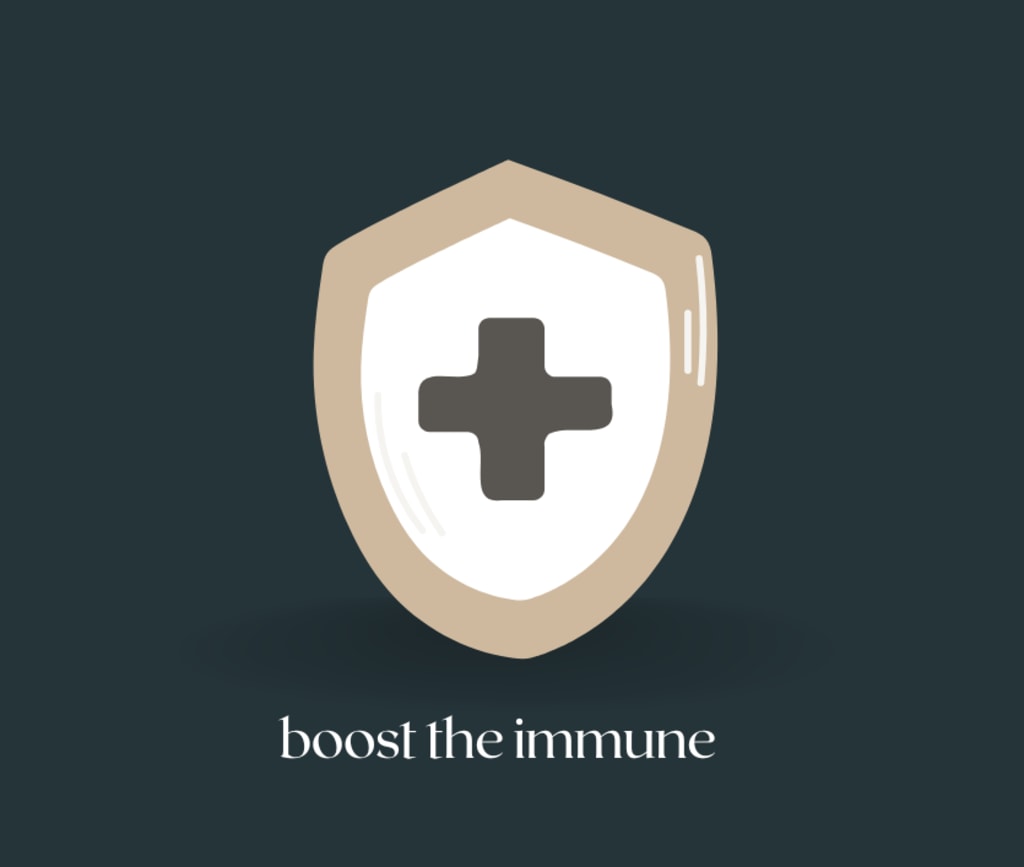The Power of the Immune System: Strengthening Your Body's Natural Defenses
Tips for Boosting Immunity and Reducing the Risk of Infections Through Lifestyle Changes and Vaccinations

The immune system is a complex network of cells, tissues, and organs that work together to protect the body from harmful pathogens, such as bacteria, viruses, and parasites. When the body detects the presence of a pathogen, it mounts an immune response to eliminate it and prevent it from causing harm.
The immune response is a coordinated series of events that involves the activation of various immune cells and the production of antibodies, proteins that can recognize and neutralize specific pathogens. There are two main types of immune responses: innate immunity and adaptive immunity.
Innate immunity is the first line of defense against pathogens and is present from birth. It includes physical barriers, such as the skin and mucous membranes, as well as cells such as neutrophils and macrophages that can detect and engulf pathogens. Innate immunity is a rapid, non-specific response that can be activated within minutes of a pathogen's entry into the body.
Adaptive immunity, on the other hand, is a slower, more specific response that develops over time. It involves the activation of T cells and B cells, which can recognize and respond to specific pathogens. Once activated, these cells can produce antibodies and memory cells that can provide long-lasting immunity to a particular pathogen.
A strong immune response is essential for maintaining good health and preventing infections. However, certain factors can weaken the immune system and make individuals more susceptible to infections. These factors include:
Poor nutrition: A diet that is lacking in essential nutrients such as vitamins A, C, and E, zinc, and selenium can weaken the immune system and increase the risk of infections.
Stress: Chronic stress can suppress the immune system and increase the risk of infections.
Lack of sleep: Sleep is essential for maintaining a strong immune system, as it allows the body to repair and regenerate.
Lack of exercise: Regular exercise can help to boost the immune system and reduce the risk of infections.
Chronic diseases: Chronic diseases such as diabetes, obesity, and heart disease can weaken the immune system and increase the risk of infections.
There are several steps that individuals can take to strengthen their immune system and reduce the risk of infections. These include:
Eating a balanced, nutrient-dense diet that includes plenty of fruits, vegetables, whole grains, and lean protein sources.
Managing stress through relaxation techniques such as meditation, yoga, or deep breathing exercises.
Getting enough sleep, aiming for 7-8 hours of sleep per night.
Exercising regularly, aiming for at least 30 minutes of moderate-intensity exercise per day.
Managing chronic diseases through regular medical care and lifestyle modifications.
In addition to these lifestyle factors, certain supplements and herbs may also help to boost the immune system. These include vitamin C, vitamin D, zinc, echinacea, and garlic. However, it is important to note that these supplements should not be used as a substitute for a healthy diet and lifestyle.
In conclusion, the immune system plays a critical role in protecting the body from harmful pathogens. A strong immune response is essential for maintaining good health and preventing infections. By adopting a healthy lifestyle that includes a balanced diet, regular exercise, stress management, and adequate sleep, individuals can support their immune system and reduce the risk of infections.
It is also important to note that vaccines are an effective way to stimulate the immune system and provide protection against infectious diseases. Vaccines work by introducing a small, harmless piece of the pathogen into the body, which triggers an immune response and produces memory cells that can provide long-lasting immunity.
Vaccines have been instrumental in controlling and eradicating many infectious diseases, such as polio, measles, and smallpox.
In some cases, the immune system can become overactive and attack healthy tissues and organs, leading to autoimmune diseases such as rheumatoid arthritis, lupus, and multiple sclerosis. These diseases can cause chronic inflammation, pain, and organ damage. Treatment for autoimmune diseases typically involves medications that suppress the immune system and reduce inflammation.
In conclusion, the immune system is a complex network of cells, tissues, and organs that play a critical role in protecting the body from harmful pathogens. Maintaining a strong immune system requires a healthy lifestyle that includes a balanced diet, regular exercise, stress management, and adequate sleep.
Vaccines are also an effective way to stimulate the immune system and provide protection against infectious diseases. While autoimmune diseases can be challenging to manage, medications that suppress the immune system can help to reduce inflammation and prevent organ damage.





Comments
There are no comments for this story
Be the first to respond and start the conversation.